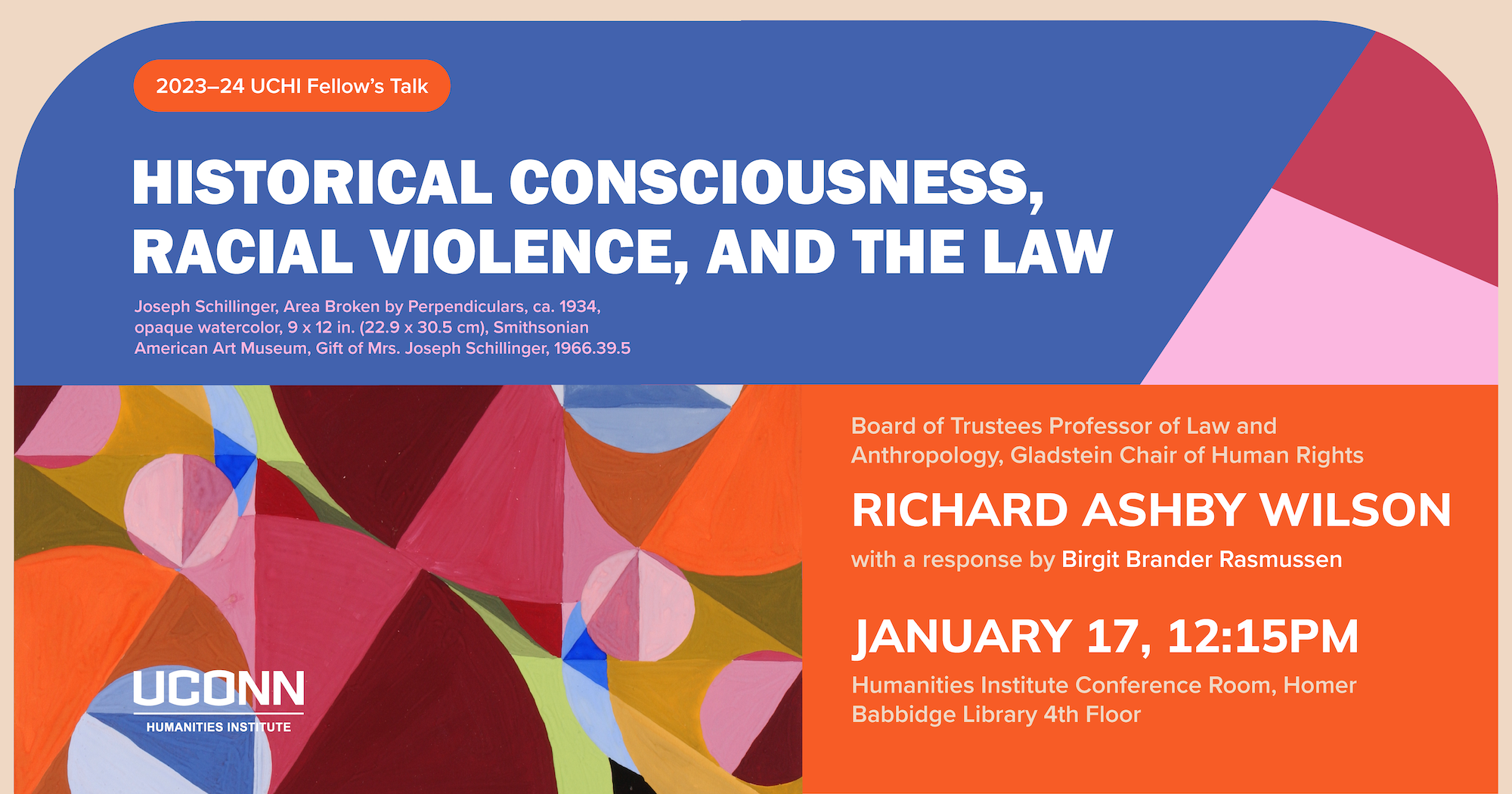Historical Consciousness, Racial Violence, and the Law
Richard Wilson (Professor, Law, Anthropology, and Human Rights, UConn)
with a response by Birgit Brander Rasmussen (English, Binghamton University SUNY)
Wednesday January 17, 2024, 12:15pm, Humanities Institute Conference Room (HBL 4-209)
In the aftermath of 2020 and nationwide Black Lives Matter protests, states and municipalities in the United States implemented a range of new policies to reform the relationship between law enforcement and historically marginalized groups. These measures acknowledge the role of the law in racial oppression and seek to reorient policing towards protecting groups from hate crimes, or crimes motivated in whole or in part by bias or bigotry. This talk draws on Bourdieu’s notion of the “juridical field” to evaluate the implications of such reform initiatives for how actors in the criminal justice system address the history of racially motivated violence and the implications for the enforcement of hate crimes.
Dr. Richard Ashby Wilson is Board of Trustees Professor of Law and Anthropology and Gladstein Chair of Human Rights. He is a scholar of transitional justice and his recent scholarship has focused on hate speech and incitement in international and U.S. law. His books include The Politics of Truth and Reconciliation in South Africa, Writing History in International Criminal Trials, and Incitement on Trial. He is a member of the Hate Crimes Advisory Council of Connecticut and he is writing a book about the challenges in reporting, investigating, and prosecuting bias-motivated crimes in the United States.
Birgit Brander Rasmussen is Associate Professor in the English Department at Binghamton University (SUNY), located on unceded Onandaga land. She wrote the award-winning book Queequeg’s Coffin: Indigenous Literacies and Early American Literature and co-edited The Making and Unmaking of Whiteness.
Access note
If you require accommodation to attend this event, please contact us at uchi@uconn.edu or by phone (860) 486-9057. We can request ASL interpretation, computer-assisted real time transcription, and other accommodations offered by the Center for Students with Disabilities.


